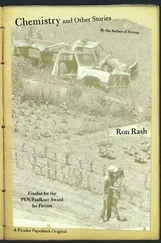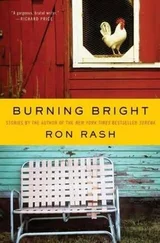Pemberton and Serena followed Rough Fork Creek to Shanty Mountain, halfway up when they heard a shout behind them and saw Meeks coming their way. The accountant had never ridden a horse before coming to the camp, and he kept his back bowed and head close to the mare's neck. When he caught up with the Pembertons, Meeks lifted his head and spoke softly, no doubt fearful a raised voice might cause the horse to bolt.
"Galloway called," he said to Serena.
Serena turned to Pemberton.
"I'll catch up with you in just a minute."
"No," Pemberton said. "I'll wait."
Serena looked at Pemberton's face a few moments, as if searching for some feature in it that might counter his words. Satisfied, she nodded.
"Tell us," she said to Meeks.
"Galloway's traced 'them,' whoever 'them' are, to Knoxville and they didn't buy a ticket," Meeks said with some exasperation. "He also said to tell you no freight train left before he arrived, so 'they' are evidently still there."
Meeks slowly lifted himself higher in the saddle to retrieve a piece of paper from his pocket.
"He told me a telephone number and said you needed to tell him what to do next."
"Go call him," Serena said, ignoring the proffered paper. "Tell him I said they've probably got no one there to stay with and no money, so he should start looking around Knoxville."
"I didn't realize I was also a receptionist," Meeks grumbled, then began his halting descent back to camp.
Pemberton and Serena did not stop again until they were on the mountain top. Smoke dimmed the sun to the color of tarnished copper, the light around them transformed as well, tinted like a daguerreotype. Serena untethered the eagle, raised her arm and lifted it skyward. The bird rose, its great wings beating as if pushing away not only air but the very earth itself. It veered left, caught an updraft for a moment, then continued the ascent.
Pemberton looked back at the camp, the blackened absence where the house had been. The chimney had crumbled but the steps remained intact, looking not so much like the last remnant of a house but instead steps constructed for a gallows. The ladderback chair where McDowell had sat still faced the steps.
Serena reined her horse closer to Pemberton, her leg brushing against his. He reached out his hand and caressed Serena's upper leg. Serena placed her hand on his and pressed firmly, as if wishing Pemberton's hand to leave its impression on her flesh.
"What shall we do about our former sheriff?" she asked.
"Kill him," Pemberton said. "I can do it if you want me to."
"No, Galloway can do it," Serena said, "as soon as he gets back from Tennessee."
Pemberton looked up and saw the eagle's circle had tightened. It had spotted something.
"What will it hunt in South America?"
"A snake the natives call a fer de lance," Serena said. "It's far more deadly than a rattlesnake."
"As for my hunting, it doesn't seem I'll get my mountain lion," Pemberton mused, "but a jaguar will surely be an equal challenge."
"One even more worthy of you," Serena said.
Pemberton gazed into Serena's pewter-gray irises, the specks of gold within them, then the pupils themselves. How long, Pemberton wondered, since he'd looked there, had the courage to accept such clarity.
"You're more the man I married than you've been for quite a while," Serena said.
"The fire reminded me about what matters."
"And what is that?"
"Only you," Pemberton said.
The eagle's shadow passed over them, then the bird flung itself earthward, landing fifty yards below. The bird jousted with its prey, the snake's rattles buzzing furiously at first but soon intermittent.
"That's forty-two it's killed since early April," Serena said. "I should take it over to Jackson County, let it kill some there before cold weather drives the snakes into their dens."
Serena took the metal whistle from the saddle pocket and blew, then swung the lure overhead. The bird ascended and with two great wing flaps glided up the ridge to land next to the horses, the dust-colored rattlesnake set down like a piece of slash. Pemberton's horse neighed and cantered backward and he had to jerk the reins, but the Arabian was so used to the bird and its prey that it did not even turn its head. The snake twisted onto its belly, and Pemberton saw where the bird's beak had opened the snake's midsection, tugged free strands of purple guts. The snake's tail rattled feebly a few moments more, then was still.
***
IT was two afternoons later when Pemberton heard the sound of Galloway's car as it bumped and rattled into camp. He went to the office window and watched Galloway rise stiffly from the car, a plum-colored stain darkening the left side of his face. The left eye socket was blackened, the eye just a slit. Galloway walked into the slash and stumps and searched with his good eye until he saw Serena. She was riding toward camp, the day over. Galloway hobbled up the ridge to meet her. With his gone hand and damaged face, he appeared a man who'd fallen sideways into some dangerous machine.
Pemberton sat back down. He told himself not to think about what Galloway's face might betoken of the child's fate. He made himself think instead about the fire, those moments flames had enclosed him and Serena, and how he did not know if they would live or die, but nothing else mattered except they'd live or die together. In a few minutes Galloway's car started up and drove off out of the valley. Serena came into the office.
"Galloway's going to visit our ex-sheriff," she said, but offered no explanation of Galloway's injuries, nor did Pemberton ask.
Serena paused and looked at the boxes of files stacked in the corner for the coming move.
"We've done well here," Serena said.
AT LEAST THERE ARE MOUNTAINS. THAT WAS what Rachel told herself as she and Jacob left the boarding house and walked up Madison Street. She stepped around a puddle. The rain that had fallen all day continued to fall as evening settled over the city. A gap in the buildings allowed Rachel a glimpse at the snow-capped peak of Mount Rainier. She lingered a few moments, took in the vista as she might a mouthful of cold spring water on a hot day.
She remembered the flat vastness of the midwest, particularly a depot in Kearney, Nebraska, where they'd waited two hours to change trains. She had taken Jacob for a walk down the town's one street. The houses quickly thinned out, then only fields of harvested wheat and corn beneath a wide sky. A landscape where no mountains rose to harbor you, give you shelter. She'd wondered how people could live in such a place. How could you not feel that everything, even your own heart, was laid bare?
Rachel walked toward the café where from five to midnight she was paid twenty cents an hour to wash dishes and clean off tables. Mr. and Mrs. Bjorkland let her lay Jacob on a quilt in the kitchen corner, and each night Mrs. Bjorkland gave Rachel big helpings of food to take home. Rachel passed enough destitute men and women on the streets every day to know how lucky she was to have a job, not to be hungry and in rags, especially after being in Seattle less than a month.
A car horn startled her, and she knew if she lived here the rest of her life she'd never get used to the busyness of town life, how something was always coming and going and whatever that something was always had a noise. Not soothing like the sound of a creek or rain on a tin roof or a mourning dove's call, but harsh and grating, no pattern to it, nothing to settle the mind upon. Except in the early morning, those moments before the city waked with all its grime and noise. She could look out the window at the mountains, and their stillness settled inside her like a healing balm.
Читать дальше












